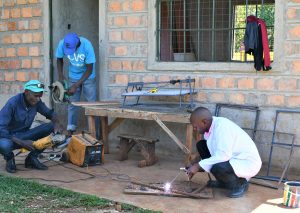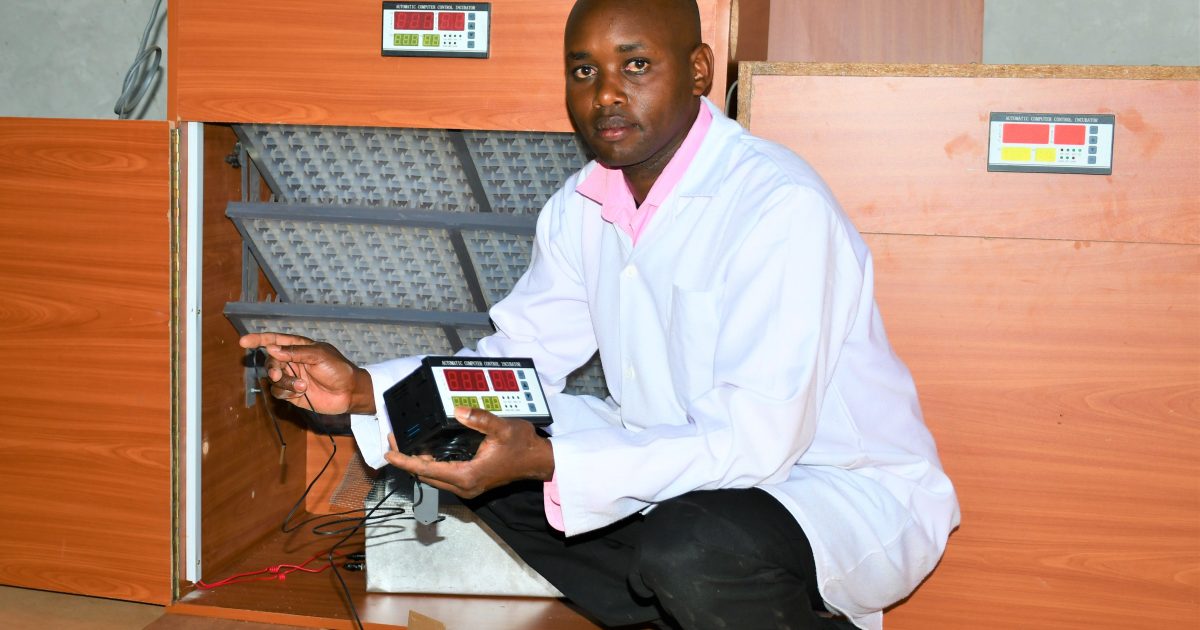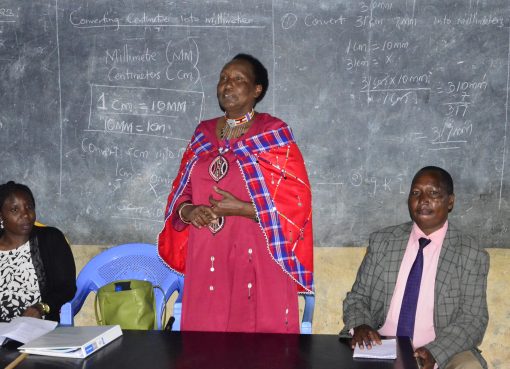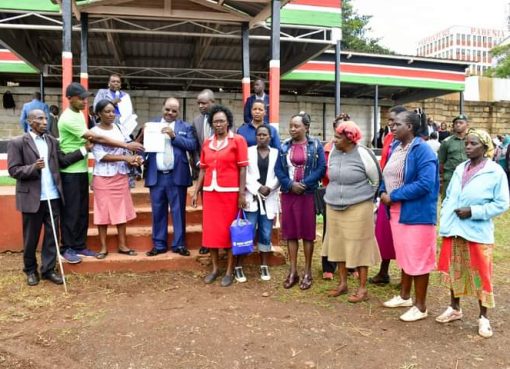The Youth Enterprise Development Fund which is one of the flagship projects of the Vision 2030, under the social pillar, has continued to uplift the lives of the youth in Kericho County by providing easy and affordable financial and business development support services.
Robert Kipkoech from Kiptegan village in Kapsoit, Kericho County narrates his captivating story of how he has gradually risen from grass to grace through the incubators fabrication project he started after receiving a loan from the Youth Enterprise Development Fund.

The 32-year-old father of two intimated to KNA that in 2019, he managed to secure a loan from the Youth Fund worth 1 million shillings which enabled him to launch his incubators fabrication business that earns him at least Sh150,000 monthly when the demand is high.
The passionate entrepreneur disclosed that the incubators he makes are the most preferred in the region as it is an improved prototype of ordinary incubators that exist in the market since he uses Medium Density Fibreboard (MDF) which moderates heat.
“Most incubators in the market are made of iron sheets which rarely moderates heat and more often than not eggs get spoilt due to excessive heat. That is why I decided to use MDF which is a better option.” Said Kipkoech.
Kipkoech, a graduate of Rift Valley Institute of Science and Technology with a Diploma in Mechanical Engineering revealed that he earned his stripes and learned his ropes when he worked in Qatar where he was employed as an Engineer in a firm that dealt with construction and repair of incubators.
“My two-year experience in Qatar opened my eyes to an opportunity I thought would work better in Kenya. So, I made sure I gained the necessary skills for the construction of incubators before coming back home to start my own business when my contract expired,” added Kipkoech.
Kipkoech who currently has employed four technicians at his newly constructed workshop explained that he imports construction materials from China twice a year which costs him over Sh600,000 per import adding that the quality of materials from China is best suited for the longevity and effectiveness of his product.
“One incubator takes three days to be complete and ready for use,” remarked Kipkoech who is also a local leader and hopes to vie for a political seat in future. He says that the prices of incubators largely depends on the number of eggs they can hold.
“An incubator with a capacity of 528 eggs costs Sh.60, 000 while that of 352 eggs costs Sh55,000. An incubator with a capacity of 254 eggs costs Sh. 50,000 and that of 88 eggs cost Sh30, 000.” Stressed Kipkoech.
He disclosed that he gets his customers from referrals from other customers who have used his product profitably and also from an agro vet company known as Parkson that sells his products to various customers in the neighboring counties of Bomet, Kisumu, and Nakuru.
“I have also managed to secure several tenders to distribute incubators which have also boosted my income which has in turn assisted me to start other projects that are of great benefit to my family,” said Kipkoech.
The trader who has now bought his young family a huge piece of land and currently building for them a palatial house from profits he has so far made says he hopes to pay his youth fund loan and take another loan to expand his business into an enterprise that will employ at least 50 youth from his village.
“By next year, I will be done paying off the Sh1 million loan and I hope to qualify for Sh3 million loan with which I intend to expand my business and impact more lives by providing job opportunities to the youth in my area,” Kipkoech said.
According to Kericho County Credit officer, Mr. Victor Langat a total of 34 investment groups and five individual investors have benefitted from the Youth Enterprise Development Fund to a tune of Sh11.6 million.
“For the 34 groups, we disbursed a total of 8.2 million shillings while registered individual investors received 3.4 million shillings.” explained Langat.
The Credit Officer further said that recovery of the loans dished out to individual investors and groups improved this financial year adding that strategies had been put in place to ensure effective recovery.
“We are using Administration Officers like Chiefs to follow up on groups and individuals in order to ensure the loans are paid in time. We are also closely monitoring their projects and their repayment,” he added.
Langat encouraged the youth in Kericho County to capitalize on the youth fund noting that the uptake of the Loans for those with tenders is still low yet they provide up to 70 per cent financing for tenders.
“The Agri-biz loan is available to youth who wish to start or expand agricultural-related businesses including the purchase of equipment and working capital. It is available to individuals, registered groups, partnerships, and companies owned and run by the youth in which they can access up to Sh. 2 million to be repaid within 3 years,” said, Mr. Langat.
He pointed out that applicants must source inputs or equipment from accredited vendors and provide invoices/quotations for the same. They must also have a valid supply contract where applicable and copies of the same provided as well as relevant licenses, and a proposal for starting an agricultural undertaking, endorsed by a mentor in the same agribusiness who will also guarantee the applicant.
Applicants are also required to provide relevant business records including sales agreements, provide certified 6 months bank statements, and provide proof of ownership of the land where farming will be undertaken or lease agreements for leased land, or consent of use of land from the owner.
“Start-up applicants must be organized in groups, or must have alternative income, or must provide conventional securities,” Langat explained.
By Kibe Mburu and Sharon Chepkoech





